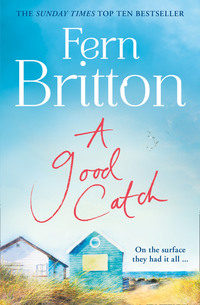
Полная версия
Daughters of Cornwall
‘Do you think they’d approve of me?’ he asked.
‘Oh Bertie,’ I smiled, ‘they would adore you.’
The train guard was walking the corridors as he did before arriving at every station. ‘Bodmin Road. Next stop Bodmin Road.’ I readied myself to disembark.
Standing on the platform, I watched as the train chuffed away down the line and out of sight on its journey towards Penzance. The sun had set and the Cornish winter air blew gently on my skin. I took a scented lungful.
Bertie had told me that it was warm enough down here to grow palm trees. ‘You’re pulling my leg,’ I had laughed. ‘No, I’m telling the truth. We have one in our garden. I will show it to you.’
I picked up my bag and walked past the signal box painted smartly in black and white, towards the ticket office where a sign painted with the word TAXIS pointed. Even now, the half-expected hope that Bertie would be waiting for me made me breathless with longing. I imagined him running towards me. His long legs carrying him effortlessly. His strong arms collecting me up easily, lifting me from the ground so that my face was above his, the look of love shining between us.
‘Excuse me, miss.’ A man with a peaked hat walked towards me. ‘Would you be Miss Carter?’
‘Yes.’
‘I thought so. You looked a bit lost on your own.’ He had a kind face but not too many teeth. ‘Welcome to Cornwall.’ He held out his hand and I shook it. He had a good handshake. Dry and strong.
‘I’m your taxi to Callyzion. Name’s Chewton. At your service. Let me take your case, miss.’
‘Oh yes. Reverend Bolitho wrote to me to explain. It’s very kind of you both.’
‘No trouble. I’ll put your case in the back and you sit up front next to me. You’ll be warmer.’
Chewton was a fountain of all local knowledge. He gave me a running commentary with potted histories of the family houses as we passed, and pointed out a couple of shops he thought I might be interested in.
‘There’s the post office and a very nice ladies’ wear shop. Won’t be as good as your London shops, mind, but you’re bound to find something pretty to suit you. Mrs Chewton told me to tell you that.’
I felt a pang of alarm. ‘Do many people know I’m coming?’
‘Oh yes. You’re the talk of the parish. Mr Herbert was loved by us all. We missed him when he was doing his rubber planting in Malaya. What a thing, eh.’ Chewton shook his head incredulously. ‘Malaya. Cor dear. He had a pet monkey, you know.’
I felt the familiarity of tears pricking the back of my eyes. ‘Yes. Bingo?’
‘That’s right. Mr Herbert told me about all the tricks that monkey played. Running off with Mr Herbert’s breakfast, hiding things round the house.’
The tears tightened in my throat. ‘I wish I had met him.’
‘Ah,’ Chewton smiled, ‘you may not have met the monkey but you did meet the man.’
‘Yes.’ I swallowed hard. ‘He was a wonderful man, wasn’t he.’
‘Brave man,’ Chewton replied. ‘One of the best.’
We said nothing more to each other, sitting with our own memories.
We were out of Bodmin now and the headlights struggled in the shadowed lanes. Great tunnels of trees blocked out any starlight. I could make out small cottages, some with their lamps still lit. And as the car came to a sharp bend in the road, a white owl took off from a gatepost and flapped away, calling as it went.
At last we passed a road sign telling us that Callyzion was just one mile away. Winding our way down a steep lane, then bursting out of the darkness of another tree tunnel, we turned left at a tiny crossroads with a small village green. Upon the muddy, mole-hilled grass, a sign advertised CHRISTMAS JUMBLE SALE, CHURCH HALL, 2.00 P.M. SUNDAY.
Chewton pointed it out to me. ‘We’m raising money for our village war memorial. Mr Bertie will be on it.’
Three houses down he stopped the car. We were outside a large iron gate.
‘Here we are, miss,’ he said as he pulled on the handbrake. ‘The vicarage. Let me get the door for you.’
He carefully helped me out of the car and then lifted my case from the back seat. I searched in my velvet bag for my purse. ‘How much do I owe you?’
‘Nothing at all, miss. The account has been settled by Miss Amy.’
I held out a shilling as a tip. ‘Please. For your trouble.’
He waved it away.
‘For the war memorial at least?’
He looked at the coin doubtfully before winning the battle in his mind. ‘Thank you, miss. Very kind. That’ll be for Mr Bertie.’ He touched the peak of his cap. ‘Have a nice stay with the vicar. He’s a lovely man.’
He drove off, waving a cheery hand, and left me standing outside the cold iron of the house’s gate. Bertie’s home lay beyond. I looked up at it. A big house. The sort I would have drawn as a little girl. A front door in the middle and, on either side, four bay windows, two up and two down.
It sat in the middle of a square garden with a hedge that seemed to go all the way around it and a path leading from the gate to the front door.
There were several neighbouring houses; all had wisps of smoke coming from their chimneys indicating the warmth inside. From the vicarage chimney there was nothing. Bertie had warned me to pack twice the usual amount of warm underwear as his parents did not like heating the house unless completely necessary.
‘Maybe when there’s ice on the inside of the windows,’ he’d told me, ‘but not before.’
I hadn’t told him that I knew all about freezing homes in bitterly long winters. I didn’t speak of my cruel beginnings to anyone. My past life was a closed book. My secret. Instead I had told him that my parents had been farmers in Kent. Hard-working but comfortably off and that I was an only child. That bit was true. The next bit was not. I told him of a tragedy that had struck when a fire in one of our oast houses had taken hold. Both my parents and one of the pickers had died trying to put it out. Fortunately, there was enough money from the sale of their farm, I told him, for me to go to a boarding school for young ladies where I had been taught extremely well by very kind women who, with care and love, had helped me to forge a new life. All a lie.
Standing outside Bertie’s home now, I was glad he would never discover the truth. What lay in front of me was a fresh chapter in my new life. A chapter without Bertie.
It was getting cold and I was shivering. I wrapped my coat tighter around me, collected up my case and opened the tall iron gate. Taking a deep breath for courage, I walked the chequered tiled path to the front door.
The navy blue paint was chipped, particularly around the letter box. I imagined the letters of condolence that had been dropped through it since the black-edged telegram had been delivered. The terrible news.
IT IS WITH THE DEEPEST REGRET … KILLED IN ACTION … GOD SAVE THE KING.
I hesitated before pulling the bell. Bertie would want me to be brave. ‘No point mooning about, old girl,’ I could hear him saying.
The bell rang deep in the house.
Inside, I imagined the two servants Bertie had talked about. Dora, the maid of all work and Cook. They would have heard the bell and been expecting me. Dora would be drying her hands on her apron, pushing the escaped strands of hair under her cap, and scurrying from the kitchen, into the chilly hall and to the front door. I thought how Cook would have told her off more than once that day. ‘Stop your jittering and jumping. She’ll be here soon enough. Finish the ironing, that’ll keep your silly brain quiet.’
And now here I was. The stranger they had been waiting for. Mr Herbert’s intended. Clara Carter. A thin, pale woman in her early twenties with hazel eyes that could be lively if they weren’t so sad.
How would Dora describe me later, downstairs behind the closed door of the kitchen?
‘The poor lamb is broken with grief. I could have hugged her there and then.’
Cook would clasp her hands over her bosom in sympathy. ‘Oh, the poor duck. What was she wearing?’
‘Black, of course. I think she had rouge on her cheeks to cheer herself up, and red lipstick too.’
‘Oh dear,’ Cook would say, ‘Mrs Bolitho won’t like that. Nor Miss Amy neither. What about her hair?’
‘Brown and crimped into a bun. And she’s so thin. There’s no meat on her.’
Cook might shake her head sadly. ‘Well, she won’t get fat in this house. Another mouth to feed on the housekeeping that Miss Amy gives me – it doesn’t go far enough as it is. What did you say to her?’
‘I says to her, “Hello, miss.” As polite as I could. “Welcome to the vicarage. Please come in.” And she says, “Thank you”, in a nice voice, and she looked around the hall while I put her case by the hat and coat stand, and then I says, “Miss Amy will be along presently.”’
She would lead me into the parlour.
‘Did you take her coat?’ Cook would ask.
‘Oh no. I asked her but she wouldn’t. Shivering with cold she was.’
Through pursed lips, Cook would say, ‘Miss Amy needs to get that fire alight and quick. Mr Herbert would be horrified to know his sweetheart is upstairs getting frostbite.’
Dora would shake her head. ‘I asked Miss Amy if she wanted it lit after lunch to warm the room up but she said …’ Perhaps Dora would suck her cheeks in and make herself a little taller to speak in a posh dismissive voice, ‘“Whatever for?”’
Cook would sniff. ‘If she doesn’t get a move on, Miss Amy is going to be a shrivelled-up old maid. What a way to greet your own brother’s fiancée. And where’s Mrs Bolitho?’
‘Lying down. It’s the stress of it all. Or that’s what Miss Amy said. If you ask me, Miss Amy is the one who’s giving Mrs B stress.’
‘Pass me the eggs,’ Cook would demand, ‘I shall bake a welcome cake. A big one. It’s the least I can do for the poor girl.’
And now, Dora came to open the door and all that I imagined became reality. She took my bag, led me to the parlour, and left me alone.
I could not stop shivering. The parlour’s bleak fireplace was swept clean. No ashes, no kindling, no box of logs at its side.
I wondered if I should take off my coat and gloves. Would it be impolite to keep them on? My gloves were covered in smuts from the train so I removed them and stuffed them into my pockets. Were there smuts on my face too? A mirror was above the mantelpiece. Speckled and so high you would have to be over six foot before you could inspect yourself. Bertie was so tall he would have been able to see himself in it. I took out my rather tear-dampened handkerchief and rubbed at my face.
If Bertie were here he would do it for me. Bending down to make sure I looked presentable. He used to make a joke out of his height. He was at least a foot taller than me.
When we lay side by side, he would wrap his warmth around me and call me his little squirrel.
‘I mustn’t cry. I mustn’t cry. Be strong.’ I spoke into the empty room.
I put my hanky back in my bag, and felt for the cigarette case lying within. Silver and slim. Bertie had given it to me the first time he’d come home. Before he had to go back to France. We’d been walking on Ealing Common. He’d taken my hand and led me to a small bench where we sat down. ‘I have something for you.’ He’d reached inside his army tunic, pressed the little package into my hand and watched as I opened it.
‘Bertie!’ I remember turning it over in my hands, tracing the ornate engraving on the precious metal. ‘It’s beautiful.’ I laughed, ‘Now I shall have to take up smoking properly.’
‘That’s the idea. Every time you put a cigarette to your mouth,’ he said, rubbing his thumb over my lips, ‘think of me.’ He’d bent his head and kissed me.
‘I will think of you all the time,’ I said, trying not to sound too drippy but failing. ‘I will dream of you when I sleep.’
And now, here I was, standing in his house, in a room he knew so well. My knees went weak and I recognised the impending wall of grief that would floor me at any moment.
I pulled a cigarette from the case and tapped it on the lid, tamping down the loose tobacco strands as he had taught me. ‘Get a grip, old girl.’
I lit it and inhaled deeply, my lipstick staining the unfiltered end. A sense of calm filled my veins.
I closed my eyes and tried to imagine Bertie standing next to me; ready to introduce me to his parents.
His pride in me.
My pride in him.
His mother would be happy and welcoming. ‘You must be cold! I will get Dora to light the fire and get Cook to send up afternoon tea.’
I squeezed my eyelids tight, pushing back the inevitable tears, but my silly brain conjured up an image of Bertie as a small boy: crawling under the chenille cloth of the tea table; winding himself in the heavy, bottle-green velvet curtains; jumping from one stiff sofa to its twin, unable to dent the horsehair cushions.
I could smell him. Macassar hair oil and tobacco smoke.
For a fraction of a moment I heard him say my name. I opened my eyes with fright and hope.
It came again. ‘Clara?’
He was here? There had been a mistake? He was alive?
I reached a hand up to the marble mantel and gripped it hard, willing myself not to faint.
He called again. ‘Clara?’
He was just on the other side of the door. I could hear his heels on the tiled floor of the hall.
The door opened and my heart leapt into my throat. Tall, smiling. Bertie was standing before me.
I let go of the mantel and opened my arms, waiting for him to embrace me.
He offered his hand to shake.
‘Clara,’ he said. ‘At last we meet. Ernest Bolitho. Bertie’s brother.’
He caught my arm as my knees buckled.
‘Oh my goodness. The journey has exhausted you.’
‘I’m so sorry. May I sit down?’ I felt for the nearest chair.
‘Not that one,’ he said sharply, ‘that’s Father’s. And …’ He looked at the cigarette burning its way towards my fingers, ‘I’m sorry, but Mother does not approve of ladies smoking.’ He took the cigarette from me and crossed the room to open the large sash window that looked out, as I was to discover the next day in daylight, over the back garden.
I could see the bell tower of the church lit up beyond.
Outside, I knew, lay the palm tree Bertie had told me about and, in the middle of the lawn, an apple tree with a swing. ‘I love that swing,’ he’d told me. ‘Best toy Father ever made for us. When I take you home, you shall sit on it, under the apple blossom, and I shall push you so that your toes reach the sky.’
‘Bertie was always getting caught out with his smoking.’ Ernest’s voice broke through my memory as he threw the cigarette stub out of the window and turned back to me. ‘I’ll leave the window open. Mother has the nose of a bloodhound. How was your journey? You look tired. You’re shivering.’
‘I’m fine, honestly.’ My eyes were fixed on the bare dark branches of the apple tree outside. Bertie would never push me on the swing under the blossom after all. To my embarrassment and Ernest’s discomfort, I burst into tears.
‘Oh dear,’ Ernest said awkwardly. ‘Has anyone offered the facilities?’ he asked, looking around the room; anywhere but at me. ‘Maybe you’d like to freshen up?’
‘Yes, I would,’ I managed. ‘Thank you.’
‘Our maid isn’t too bright, I’m afraid. God knows where Amy got her from but,’ he coughed, ‘needs must, I suppose.’
He pulled the bell rope by the fire and within seconds Dora entered.
‘Yes, sir?’
He gestured towards me whilst issuing orders. ‘Please show Miss Carter to the facilities and ask Cook to organise some tea.’
The maid bobbed. ‘Yes sir.’
I gathered myself and gratefully crossed the room to join her.
I was suddenly aware that I was badly in need of the lavatory, and also to cool my face and neck.
‘Oh, and Dora,’ Ernest barked as we left, ‘put Miss Carter’s luggage in her room. Which one has my sister got ready?’
Dora, her eyes darting from mine to Ernest’s, replied quietly, ‘Mr Herbert’s room, sir.’
I thought I might faint again, ‘What?’
Ernest hitched up the knees of his perfectly pressed Oxfords and sat on one of the ugly sofas, oblivious to my distress. ‘Good. Come back when you’re settled.’
I followed Dora into the hallway and watched as she collected my small case from the foot of the hat stand and began to climb the stairs.
‘I’ll show you to your room,’ she said. ‘It’s a nice room. It overlooks the church.’
I took in my surroundings rather than speak. Linoleum, cold and bare in patches, covered the landing floor. Dora stopped at the second room on the left. ‘Here you are.’ She opened the door with her free hand and stood aside to allow me to enter.
A single bed with a brown headboard faced the one window. A washstand stood in the corner and a heavy mahogany wardrobe against the wall opposite.
Dora put the case on the bed. ‘Lavatory is out of the door, turn left. It’s at the end of the corridor. Miss Amy’s room is just across the landing.’
Shakily, I thanked Dora, and waited until she had closed the door behind her.
Here I was, here in Bertie’s room. He had told me about it. This bed was where he had slept. Those books, haphazardly lying in the bookcase, were the ones he had read. He had sat at that small table, labouring over homework. Biting the end of his pencil and staring at the church at the end of the garden for inspiration.
I opened one of the wardrobe’s double doors and was hit by the powerful smell of mothballs. On the rail were three bare hangers, presumably for my use. I opened the other door and stepped back quickly. Hanging there was Bertie’s coat. The one he had worn when I had first met him. I reached out and touched its sleeve then pulled it to my nose. Yes, this was him. This was his scent. ‘Bertie,’ I whispered into the scratchy wool. ‘It’s me. I’m here in your room. I’m here.’
There was a knock at the door and I dropped the sleeve, shutting the doors quickly.
‘Come in,’ I called.
A woman, very tall and bony, entered. She wore a navy blue dress almost to the floor, high-necked and belted, and stood in the doorway without expression. Her sharp eyes took me in from head to toe. ‘Clara. Mother and I thought this room would be most suitable for you.’
‘Oh yes, it’s … lovely. Thank you. You must be Amy? Bertie talked a lot about you.’
‘Yes.’ Her eyes alighted on my case on the bed. ‘But you haven’t unpacked yet.’
‘I only just got here and I’d like to freshen up before I come down. If that’s all right?’
‘Tea will be served in the parlour. Father will be home at four thirty.’ She moved as if to leave, then as an afterthought turned back. ‘I don’t like to keep meals waiting.’
Chapter Three
Clara, Callyzion
December 1918
I brushed my hair, put on my smarter cardigan and touched up my lipstick.
The church bell was striking the hour as I went downstairs and entered the parlour. It wasn’t looking much more cheerful than when I’d left, but at least there was a fire, albeit struggling, in the grate. What it lacked in heat, it attempted in cheer.
Ernest was on one sofa, as I had last seen him, and Amy was sitting opposite him, with an elderly woman on the other.
‘Here she is.’ Ernest stood up and smiled. ‘Mother, this is Clara.’
‘Come closer, my dear.’ Her smile was clouded with grief. ‘My eyes aren’t what they were and I want to look at you.’
‘Mrs Bolitho.’ I went to her. ‘Thank you so much for inviting me.’
Her grey eyes darted over my simple clothes and figure.
‘You have a good, ordinary face,’ she said to me. ‘I like that. Bertie liked it too. I know. But, too much lipstick.’
I stood my ground. ‘Bertie liked it.’
His mother folded her arms and chuckled. ‘Bertie always liked spirited people. That’s good. He also told us that you have family in Kent?’
‘Yes.’
‘And what do they do?’
‘They farmed. Apples and hops mostly. But we had an excellent dairy herd too.’ My lies poured easily into the room.
‘How many acres?’
‘Goodness knows. Around two hundred at least.’
Ernest interjected. ‘Jolly good.’
‘Yes,’ I gave him my practised, sad smile. ‘But nothing can substitute for the loss of one’s parents when one is so young.’
‘Goodness. We didn’t know,’ Ernest said apologetically. ‘How dreadful for you.’
Mrs Bolitho seemed to me to perk up at this information. ‘Oh, my dear. Come and sit down next to me here.’ She flapped her hand at Amy, ‘Move up, dear, let Clara sit between us.’ I squeezed my hips down into the over-sprung seat, feeling the thigh bones of the women either side of me.
Amy tried to pull hers as far from me as possible, while her mother wriggled herself around to see me better. ‘What on earth happened? How did your parents die?’
I hadn’t yet thought through a cogent explanation, so I dipped my head and fumbled in my cardigan pocket for a handkerchief.
‘Mother,’ rebuked Ernest, ‘Clara will tell us if and when she wants to.’
Mrs Bolitho covered her disappointment with a sniff. ‘Well I am surprised Bertie didn’t tell us when he had the chance.’ A sigh and a short pause before asking, ‘You did tell Bertie didn’t you?’
‘Yes, of course. I told him everything.’
‘I am glad to hear it. And how is London? I believe you work there?’
‘Yes. As a secretary at the London Evening News.’
‘How interesting. We don’t get that newspaper here, of course. My husband prefers The Times.’
Before I could respond, Amy spoke across me. ‘Mama, it’s time for your cough medicine.’
‘I am perfectly fine, thank you.’ Mrs Bolitho focused on me again. ‘I want to hear all about how you met our dear Bertie. And Ernest, dear, liven up that fire, would you?’
I watched as Ernest got on his knees by the hearth and reached for a log. Every movement reminded me of Bertie and the first time I saw him.
‘Bertie and I met at a bridge club. In Piccadilly.’
Mrs Bolitho nodded. ‘And do you play good bridge?’
‘Not as well as Bertie.’ I remembered him sitting opposite me at the small table, his slender fingers holding his cards. ‘We won a couple of tournaments together.’
‘You must be pretty good then.’ Mrs Bolitho turned to Ernest, who was concentrating on the fire. ‘Clara plays bridge. Perhaps, one evening, we should play.’
‘Rather,’ said Ernest. ‘Amy? Want to make up a four?’
‘I’d rather not.’ She almost shuddered with the thought of it. ‘Where is Dora with the tea?’ She checked her watch. ‘She’s late. I’ll go and chivvy her along.’ She left the room in a rustle of skirts and left the three of us looking at the fire and trying to think of something to say.
‘You must think me very rude,’ I remembered. ‘I haven’t thanked you for the taxi you sent to the station.’
‘Amy organised that.’ Mrs Bolitho waved a hand in the direction of where Amy had disappeared. ‘She runs the house for me. The last few weeks have weakened my spirits.’ She coughed lightly. ‘Was Chewton waiting for you?’
‘Yes, he was.’
Ernest laughed. ‘I bet a penny to a pound that he gave you a tour of the fleshpots of Callyzion.’
Mrs Bolitho tutted. ‘No need for that language. Your father wouldn’t like it.’ She picked up the small watch pinned to her bust. ‘He should be home any minute. I told him to be here at four thirty on the dot.’
As she finished her sentence, as if on cue, we heard the sound of a key in the front door and a deep manly voice called, ‘Halloo. I’m home! Has Miss Carter arrived?’
‘We are in the parlour,’ Ernest called back.
The door opened to reveal an enormous man both of height and girth. Bertie had once described his father as ‘comfortingly solid’, and now, seeing him, I couldn’t think of any better words. He was dressed in a black frock coat, black shirt, black trousers and black gaiters. The only colour was the snowy white of his dog collar.







